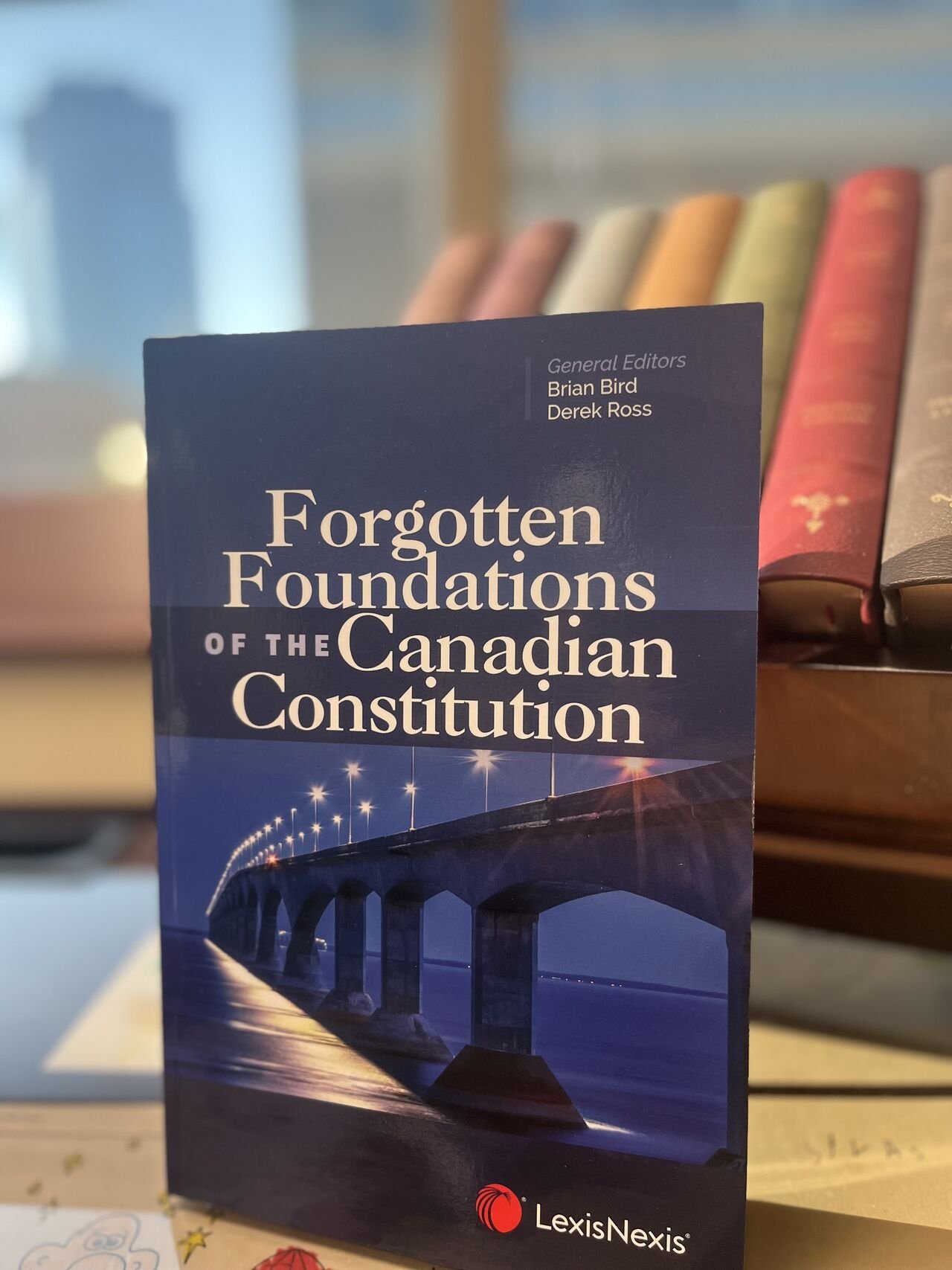Forgotten Foundations of the Canadian Constitution – New Book Now Available
CLF is excited to announce the publication of Forgotten Foundations of the Canadian Constitution (LexisNexis Canada), an edited collection of papers presented at CLF’s 2021 Annual Academic Symposium. The volume, which is now available for purchase, was co-edited by Professor Brian Bird, Assistant Professor at the Peter A. Allard School of Law at the University of British Columbia, and Derek Ross, CLF’s Executive Director and General Counsel. It is the softcover version of Volume 105 of the Supreme Court Law Review (published earlier this year).
The publication was a special project supported by CLF to commemorate the 40th Anniversary of the Canadian Charter of Rights and Freedoms, as well as the 155th Anniversary of the British North America Act. It seeks to promote a better understanding of the Constitution of Canada -- in its entirety -- by examining aspects of it which have been under-explored so far. As the book’s summary explains:
40 years after the Canadian Charter of Rights and Freedoms arrived and 155 years after Confederation, it might be tempting to think that we have come to grasp all of the facets of the Canadian Constitution. Forgotten Foundations of the Canadian Constitution reveals that the opposite is true. Many aspects of Canada’s constitutional order remain undertheorized and merit closer examination.
This collection seeks to excavate and explain a variety of foundational elements of the Canadian Constitution. Some of these elements reside in the text, some beneath it, and some only come into focus when the written and unwritten portions of the Constitution speak to each other.
The result is an enriching exploration of Canada’s constitutional architecture that will not only aid the work of judges, lawyers and scholars. It will benefit anyone who wishes to grow in knowledge of — and appreciation for — Canada’s supreme law.
The collection features contributions from 15 distinguished authors, including a foreword from The Hon. Barry Strayer, one of the principal drafters of the Charter who was instrumental in establishing the framework for the patriation of the Constitution in 1982, and a special essay from The Hon. Marshall Rothstein, former Justice of the Supreme Court of Canada.
The collection includes the following papers:
Brian Bird & Derek Ross – Forgotten Foundations of the Canadian Constitution: An Introduction
The Honourable Marshall Rothstein C.C., Q.C. – The Forgotten Roots of Canada’s Living Tree: Constitutional Interpretation and the Rule of Law
Dwight Newman, Q.C. – God in the Constitution: The Supremacy of God Clause in the Preamble to the Canadian Charter of Rights and Freedoms
John Sikkema – The First Division of Power: State Authority and the Preamble to the Charter
Mark Mancini – The Rule of Law in Judicial Review Today
Jamie Cameron – Resetting the Foundations: Renewing Freedom of Expression under Section 2(b) of the Charter
Derek Ross – Pluralism and Freedom from Assimilation: A Foundation for a “Free and Democratic Society”
Geoffrey T. Sigalet – The Truck and the Brakes: Understanding the Charter’s Limitations and Notwithstanding Clauses Symmetrically
Brian Bird – Unchartered Rights and the Free and Democratic Society
Matthew P. Harrington – “The Rights Retained By The People”: The Implications of the Ninth Amendment for the Interpretation of Section 26 of the Charter
Blair Major – All the Voices of Religious Freedom
André Schutten and Tabitha Ewert – Section 31 and the Charter’s Unexplored Constraints on State Power
Ryan Alford – Applied Legal History and the Principled Way Forward to the Recognition of Implied Fundamental Rights
Kristopher E.G. Kinsinger – Bringing About a Reformation? Religious Freedom and Canadian Constitutionalism, 1759-1774
As noted previously on our blog, this collection of papers was also published as Vol 105 of the Supreme Court Law Review (2nd series) which is now available on LexisNexis QuickLaw.
Learn more:
Introduction to Forgotten Foundations of the Canadian Constitution (by Brian Bird and Derek Ross)
A report on CLF’s 2021 Academic Symposium (by Vivian Clemence)
More about CLF’s Annual Academic Symposium on Religion, Law & Human Rights
Purchase a copy of the book at the LexisNexis Store.



